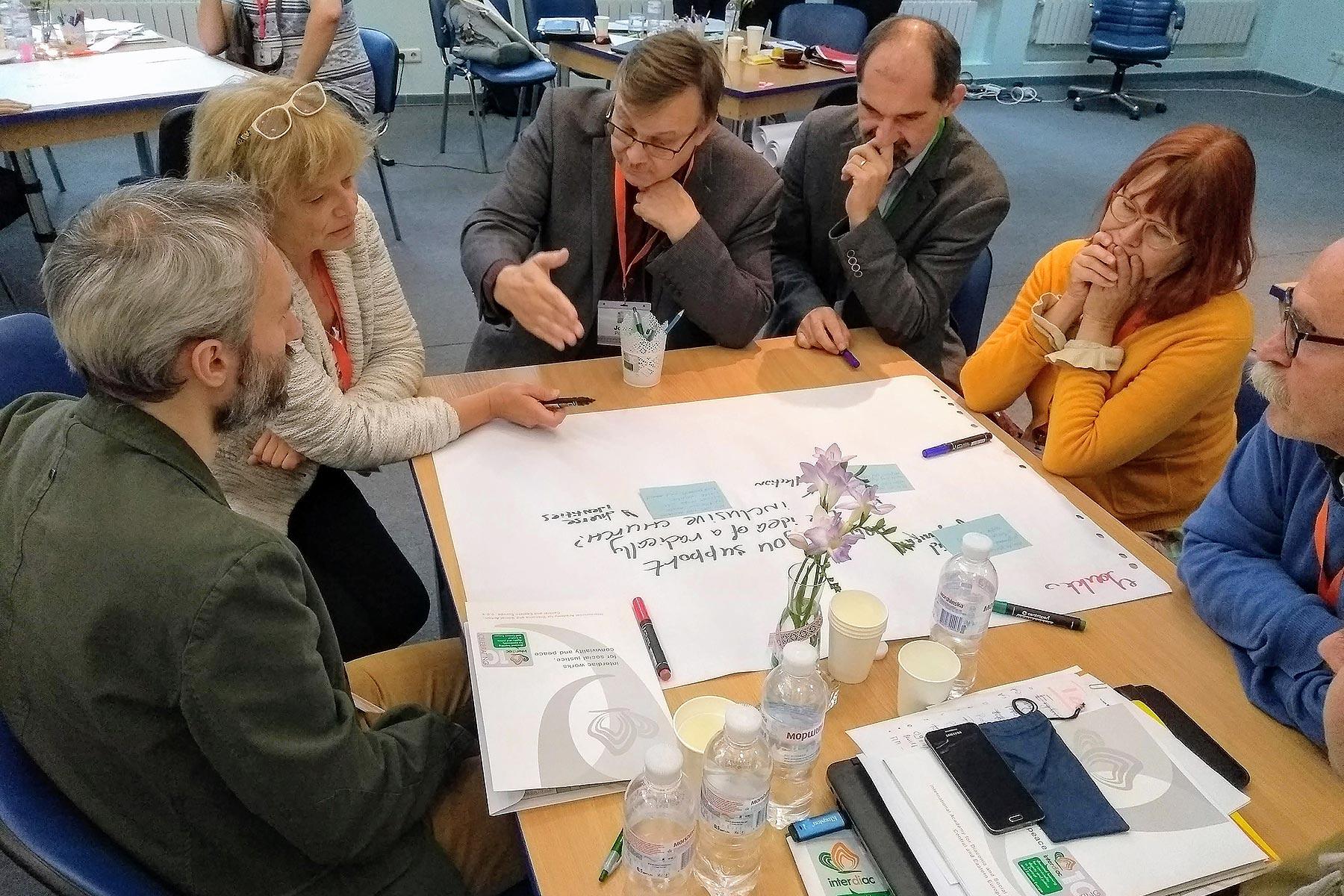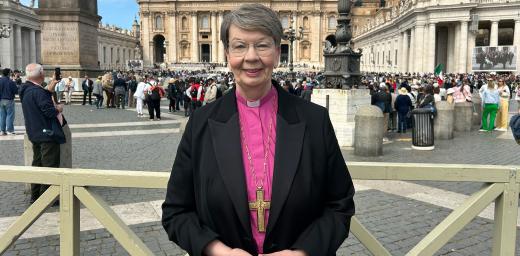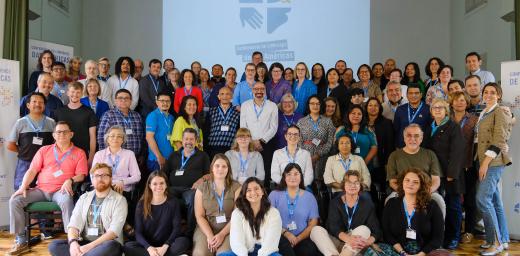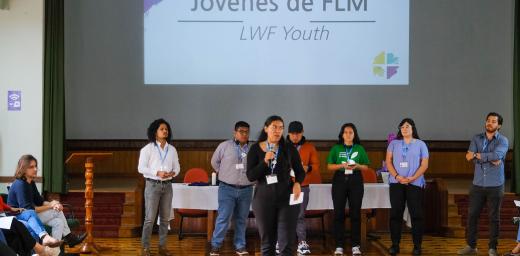Diaconal workers in Europe challenge nationalism with “conviviality”

A group discussion at interdiacâs 10th anniversary event in Kiev, Ukraine. Photo: interdiac
Tenth anniversary of Czech institute outlines vision of educational programs
(LWI) - A network of Christian social activists across Central and Eastern Europe has marked its 10th anniversary with a commitment towards educational programs that bring wider “conviviality” to a region undergoing profound change.
During a meeting in Kiev in October, 71 members of diaconal organizations affiliated to the International Academy for Diaconia and Social Action (interdiac) celebrated achievements they have pursued together since 2008 under the theme of “conviviality” - the art of living together. The Lutheran World Federation (LWF) and its member churches in the region are actively involved in interdiac’s programs.
The participants from 20 countries worshiped together, took part in interactive sessions and visited faith-based social action programs, a church, synagogue and mosque in the five-day meeting under the theme “Towards a Vision of Convivial Life Together.”
The concept of conviviality implies that those of diverse faiths and world-views are enabled to find their common convictions and create inclusive action for the common good of all.
“The concept of conviviality implies that those of diverse faiths and world-views are enabled to find their common convictions and create inclusive action for the common good of all,” they said in a statement.
They noted that Central and Eastern Europe have undergone profound changes over the past decade, including growing nationalistic sentiments, populism and related political manifestations.
These changes have been driven by migration sparked by war, civil conflict and lack of economic opportunity, the latter particularly hitting young people. Border areas continue to experience tension and hostility.
“All of these, as well as continuing issues related to poverty and marginalization have been focal concerns for the members of interdiac and consequently for its programs of learning and development,” the diaconal workers noted.
The Europe area secretary, Rev. Dr Ireneusz Lukas represented the LWF at the anniversary event. “Thanks to the work of the institute, many LWF member churches in Europe have reflected on conviviality as a core concept and guiding vision for local diakonia that is driven by vocation and the commitment to justice and dignity,” he said. The concept has also generated interest from churches in other regions of the Lutheran communion, he added.
Over the next three years, the Česky Těšín (Czech Republic)-based interdiac will focus on marginalized youth, people on the move and the ecumenical understanding of diakonia.





